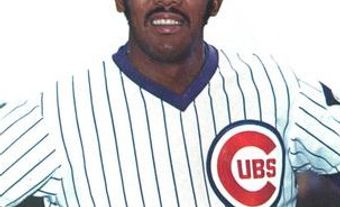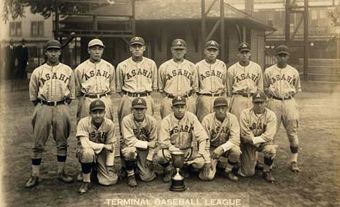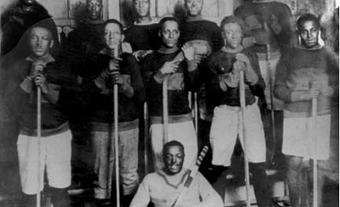Charlie Culver, baseball player, coach, factory foreman (born 17 November 1892 in Buffalo, New York; died 4 January 1970 in Montreal, QC). Almost 24 years before Jackie Robinson played with the Montreal Royals in 1946, Charlie Culver, an African American who was misidentified as Cuban, started a Class-B Eastern Canada League game for the Royals. His stint with the team lasted just six games, but Culver remained in Quebec and became one of the best baseball players in the province’s history. He later became a respected manager and a successful junior coach. He was inducted into the Canadian Baseball Hall of Fame in 2021.

Early Years
Charlie Culver was born in Buffalo, New York. His father was Joseph Edwin Culver, but his mother’s identity has been lost over time. Culver was raised by his father.
By 1917, Culver was living in New Jersey and working as a porter at Pennsylvania Station in New York City. Between 1916 and 1920, he was a standout player on some of the top independent All-Black squads of the era, including the New York Lincoln Giants and the Pennsylvania Red Caps. The versatile Culver not only excelled as a right-handed pitcher but also at second base, shortstop and in the outfield.
Baseball Career
In 1919, Culver played with the Havana Red Sox, an independent All-Black team, on an exhibition tour of Quebec. Culver fell in love with the province, and with a young widow named Paula Saint-Arnaud. They were married in 1920. Culver settled in Montreal and began playing for Saint-Henri, a local squad that competed for the city championship. (Some newspaper reports from that time refer to him as Charlie Calvert.)
In early 1922, Culver signed with the Saint-Hyacinthe baseball club, a Quebec team that was intent on winning the provincial championship. But while Culver was signing that deal, Joe Page, one of the most respected baseball executives and promoters in Quebec, was putting the finishing touches on the Eastern Canada League. It resurrected the Montreal Royals, which had ceased operations after the 1917 season. The Eastern Canada League was a four-team circuit. It was recognized as a Class-B league by the National Association of Professional Baseball Leagues.
Despite his African American heritage and the unwritten colour barrier in Organized Baseball, Culver was signed by the Royals on 25 April 1922. (He was mistakenly identified in the local press as Cuban, likely due to his experience playing with the Havana Red Sox.) The Saint-Hyacinthe club protested, insisting that Culver had already signed with them. But that failed to stop Culver from beginning the season with the Royals.
Few seemed concerned about Culver’s race when he was the starting pitcher for the Royals in their season opener on 11 May 1922 against the Ottawa Senators. Culver not only pitched a complete game but also belted a three-run home run in the Royals’ 7–2 win. He repeated his heroics in the Royals’ second game when he started in right field and hit another home run. Three days later, he made his second start on the mound. Although he wasn’t as sharp, allowing five runs on 11 hits and a walk, the Royals still won.
But after playing his sixth game with the Royals on May 17, Culver’s name disappeared from the team’s lineup. In total with the Royals, he had six hits — including two home runs and two doubles — in 19 at bats. He also earned two wins as a pitcher. The exact reason for his release is unclear. It’s possible that his true race was discovered, or that he was simply forced to honour his contract with the Saint-Hyacinthe team, which he joined later that year.
For the rest of the decade, Culver was a key performer on several semi-professional teams in Quebec. Starting in 1930, he joined George “Chappie” Johnson’s All-Black team, the Chappies. The team began playing in the Quebec District League in 1931. One of the savviest baseball minds of the era, Johnson made squad a popular draw in the province. When the Chappies left to play in the United States after the 1931 season, Culver went with them. He returned with the club when they played a series of exhibition games against teams from the Quebec Provincial League in 1935.
Player/Manager
In 1936, Charlie Culver was hired to manage the Montreal Black Panthers, a Black team that competed in the Quebec Provincial League. The Black Panthers lasted through the 1937 season, and according to Quebec baseball researcher Christian Trudeau, “played a crucial role in the rise of the Provincial League.” Culver continued to play for semi-professional teams into his early 50s.

Junior Baseball Coach
By the mid-1950s, Culver was a respected junior baseball coach in Montreal. Among the players Culver coached and influenced were future major leaguers Paul Calvert and Ray Daviault. Culver was so highly regarded as a coach that he was twice selected to manage a team of Montreal junior league all-stars against a similar team from Brooklyn, New York.
Personal Life
Charlie Culver married widow Paula Saint-Arnaud in 1920. She had a son named Gérard, whom Culver adopted. The couple had two more children: Joseph (born in 1924) and Dolores (born in 1927). However, Paula died of typhoid fever in 1930. A heartbroken Culver could not look after his youngest two children, and they were given up for adoption.
In 1934, Culver was working for the Canadian Vickers factory, where he later rose to a foreman position. Culver found love again around 1950 and married Marie-Jeanne Martel. When he died on 4 January 1970, Culver was remembered as one of the greatest baseball players in the history of Quebec.
Honours
Inductee, Canadian Baseball Hall of Fame and Museum (2021)

 Share on Facebook
Share on Facebook Share on X
Share on X Share by Email
Share by Email Share on Google Classroom
Share on Google Classroom
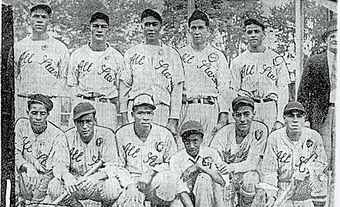
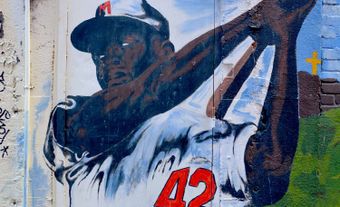
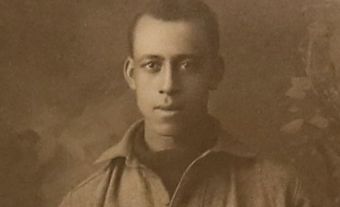
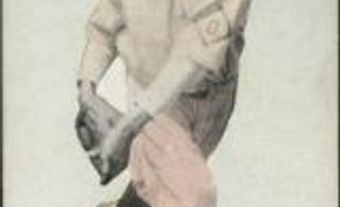
 (002).jpg)
